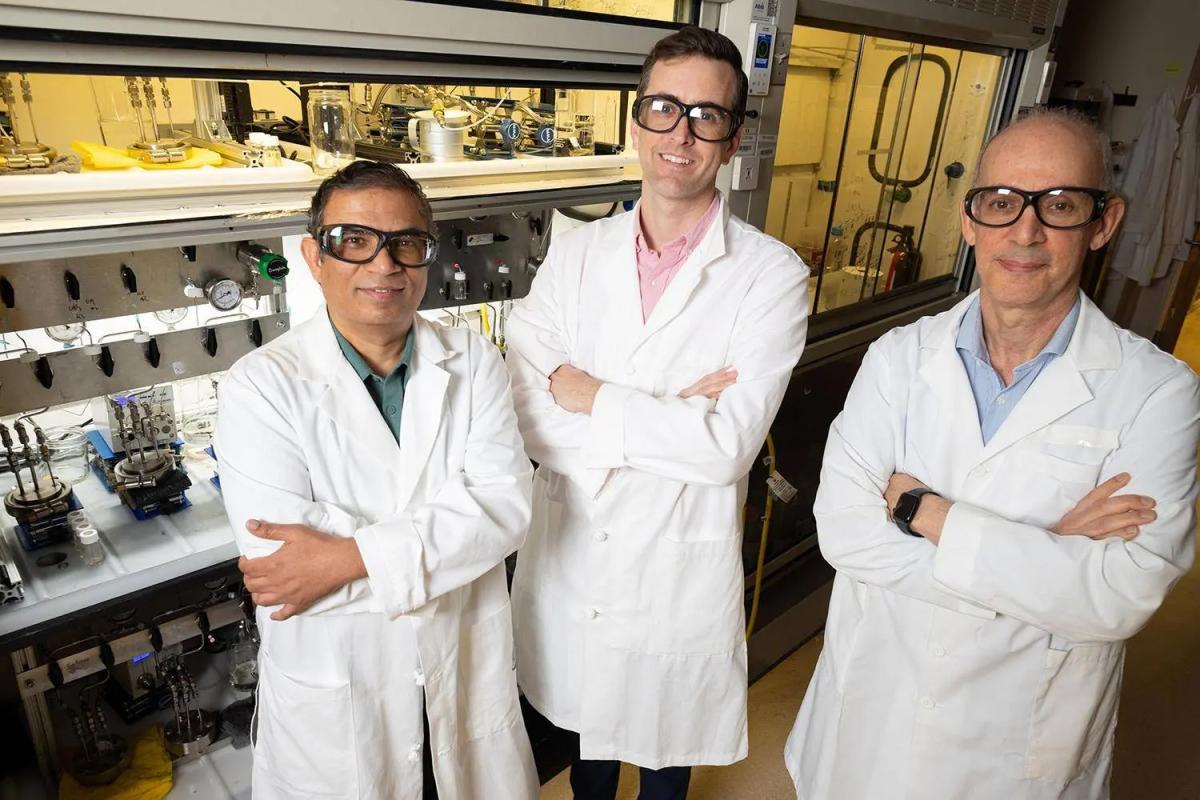
From left, researchers Rampi Ramprasad, Ryan Lively, and M.G. Finn, who have created a new kind of polymer membrane for separating crude oil into useful components. The membrane could greatly reduce the energy necessary for those initial separations. They’ve also created artificial intelligence tools to predict the performance of these kinds of polymer membranes, which could accelerate development of new ones. (Photo: Candler Hobbs)
A new kind of polymer membrane created by researchers at Georgia Tech could reshape how refineries process crude oil, dramatically reducing the energy and water required while extracting even more useful materials.
The so-called DUCKY polymers — more on the unusual name in a minute — are reported Oct. 16 in Nature Materials. And they’re just the beginning for the team of Georgia Tech chemists, chemical engineers, and materials scientists. They also have created artificial intelligence tools to predict the performance of these kinds of polymer membranes, which could accelerate development of new ones.
The implications are stark: the initial separation of crude oil components is responsible for roughly 1% of energy used across the globe. What’s more, the membrane separation technology the researchers are developing could have several uses, from biofuels and biodegradable plastics to pulp and paper products.
“We’re establishing concepts here that we can then use with different molecules or polymers, but we apply them to crude oil because that’s the most challenging target right now,” said M.G. Finn, professor and James A. Carlos Family Chair in the School of Chemistry and Biochemistry.